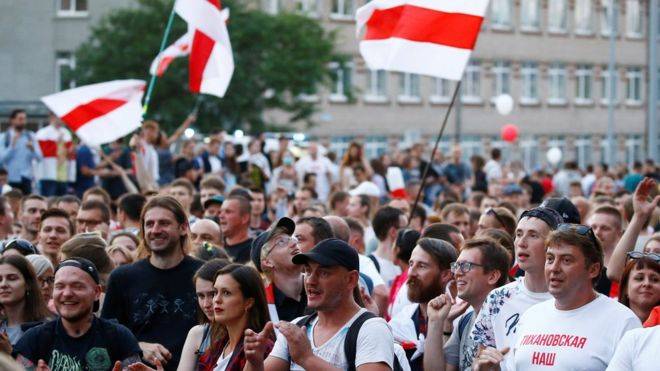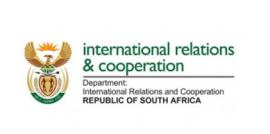
UNITED NATIONS, Aug 16 (NNN-AGENCIES) — UN Secretary-General Antonio Guterres called for restraint and calm in Belarus as the country is engulfed in protests following Aug 9’s presidential poll, said his spokesman.
The secretary-general is closely following developments in Belarus, said Stephane Dujarric, the spokesman, in a statement.
The UN chief underlines the importance of enabling all Belarusians to exercise their civil and political rights, which include expressing their views peacefully in accordance with the law, the statement said.
Guterres calls on Belarusians to address post-election grievances through dialogue to preserve peace in the country, it said.
Earlier on Friday, Dujarric said the United Nations welcomed the reported release of some of the detainees on Thursday night and urged this to continue.
“We take note of the statement of regret by the (minister) of interior of Belarus regarding the use of force and expect these incidents and claims to be investigated thoroughly,” he told a daily virtual press briefing.
The United Nations remains in touch with Belarusian authorities in New York, Geneva and Minsk regarding the unfolding situation, he said.
In the capital MINSK, thousands of people have gathered outside the state television station in Belarus demanding full coverage of protests against the disputed presidential election.
Opposition supporters outside the building in Minsk held banners with signs saying “show people the truth”.
Mass protests erupted after President Alexander Lukashenko claimed a landslide victory in the Aug 9 vote.
The state broadcaster initially chose not to cover the protests.
The election result has been condemned with widespread allegations of vote-rigging.
The Central Election Commission says Lukashenko, who has been in power since 1994, won 80.1% of the vote and the main opposition candidate Svetlana Tikhanovskaya 10.12%.
On election day, Belarusian state channels aired the voices of Lukashenko supporters and did not cover the demonstrations. State TV later showed footage of violence to blame protesters and warn people not to participate.
Several journalists have resigned over the coverage.
On Friday, European Union foreign ministers agreed to prepare new sanctions against Belarusian officials responsible for “falsification”. The US has also condemned the election as “not free and fair”.
And on Saturday, three Baltic states called for the vote to be re-run.
Some 100 staff came out of the state television building to join the protests and said they planned a strike on Monday. Others have signed a letter in support of a strike.
Lukashenko’s press secretary Natalya Eismont and senate speaker Natalya Kochanova arrived at the broadcast centre to meet staff, to shouts of “shame” from the crowd gathered outside.
Earlier on Saturday, thousands of people waved flags, lit candles and laid flowers at the scene close to the metro station where one of the protesters, Alexander Taraikovsky, died on Monday.
Others held up pictures of injured protesters, while drivers joined in by honking their horns.
Many opposition supporters chanted “Leave!” – a call for President Lukashenko to resign – and some carried signs with slogans against police violence.
A “March for Freedom” is also planned in the centre of the city on Sunday, a week after the contested election.
Amid the unrest, Lukashenko sought help from Russian President Vladimir Putin on Saturday.
Lukashenko said President Putin had promised to provide what he called comprehensive assistance in the event of external military threats to Belarus.
In a joint statement on Saturday, the prime ministers of three Baltic republics – Latvia, Lithuania and Estonia – “expressed deep concern at the violent crackdown… and the political repression of the opposition by the authorities”.
Lithuania and Latvia have also previously said they are prepared to mediate in Belarus, provided the authorities stopped violence against protesters and formed a national council with members of civil society. They warned that the alternative was sanctions.
The leaders said the presidential election was “neither free nor fair” and called for a “transparent” vote “with the participation of international observers”.
“The prime ministers urge the Belarusian authorities to refrain from violence against peaceful demonstrators [and to] release all political prisoners and those that have been detained,” the statement added.
Some 6,700 people were arrested in the wake of the election, and many have spoken of torture at the hands of the security services.
Amnesty International said accounts from released detainees suggested “widespread torture”. — NNN-AGENCIES






